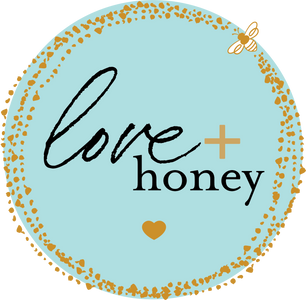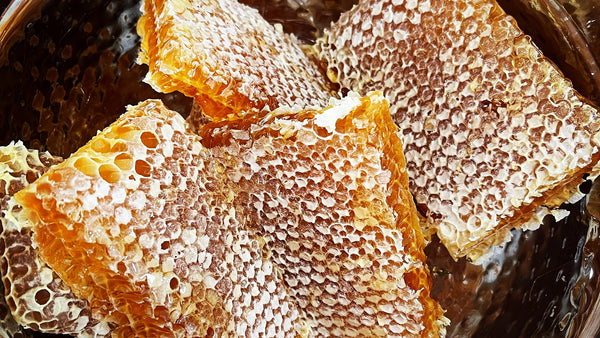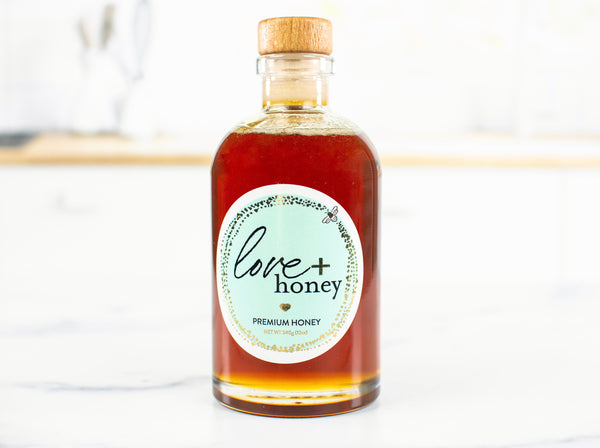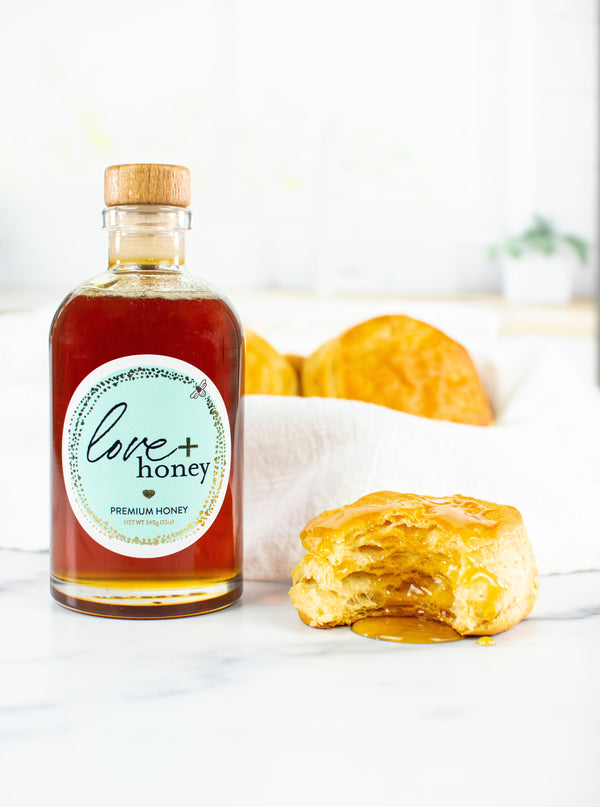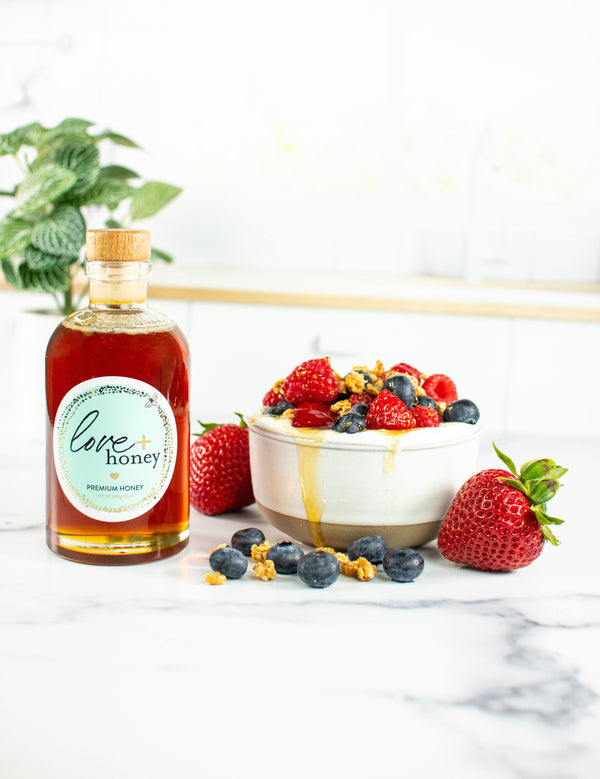The Health Benefits of Honey: Spotlight on Enzymes and Pollen
Sep 13, 2023
Pollen and enzymes: two parts of honey that are often talked about as being beneficial but not well understood as to why. Enzymes specifically have a lot of mystery. People know they are good but they don’t necessarily understand why. Let’s take a dive into these components of honey.
What is an Enzyme?
First, what exactly is an enzyme anyway? Enzymes are complex protein molecules that catalyze (speed up) chemical reactions in living organisms. They're responsible for countless vital processes within the body, from digestion to DNA replication. Every enzyme is specialized for a specific reaction or group of reactions, meaning it can only work on particular substances, called substrates.
A common misconception is that enzymes are "alive." This is not accurate. Enzymes are molecules, not living organisms. They don't have cells, don't reproduce, and can't be "killed" in the same way a living organism can. However, they can be denatured or rendered inactive by factors like extreme temperatures, pH levels, or certain chemicals. When people say that enzymes can be "killed" by heating, for instance, they're referring to the denaturation of the enzyme's structure, which can prevent it from functioning.
Enzymes in Honey
Honey contains a variety of enzymes, introduced by bees during the honey-making process. These enzymes play a role in transforming flower nectar into the thick, sweet substance we recognize as honey. Some of the key enzymes in honey include:
- Invertase (sucrase): Converts sucrose (table sugar) into glucose and fructose.
- Glucose oxidase: In the presence of oxygen, this enzyme produces hydrogen peroxide, which has antiseptic properties, contributing to honey's role as a wound healer.
- Diacetase: Involved in producing the mild antiseptic, gluconic acid.
- Catalase: Breaks down hydrogen peroxide into water and oxygen, helping maintain the freshness and quality of honey.
The enzymes in honey can aid digestion, particularly the digestion of carbohydrates. They also contribute to honey's antiseptic properties, which is why honey can be used as a natural remedy for minor cuts and burns.
Pollen in Honey
Pollen is another vital component in honey. When bees forage for nectar, pollen sticks to their hairy bodies. As they move from flower to flower, some of this pollen makes its way into the honey.
Benefits of pollen in honey include:
- Rich Nutritional Content: Pollen is packed with proteins, amino acids, vitamins, and minerals. It's often referred to as a "superfood" because of its dense nutritional profile.
- Antioxidant Properties: Bee pollen contains antioxidants, which combat free radicals in the body. Free radicals can damage cells and contribute to aging and diseases.
- Supports the Immune System: Regular consumption of bee pollen may boost immunity and offer resistance against certain pathogens.
- Allergy Alleviation: There’s some evidence to suggest that consuming local honey containing pollen can help desensitize individuals to regional allergens, although more research is needed in this area.
Caring for Honey to Preserve its Enzymes and Pollen
To retain the maximum benefits of the enzymes and pollen present in honey, it's crucial to store and handle it with care. First and foremost, avoid exposing honey to high temperatures, as heat can denature enzymes, rendering them inactive. Therefore, never microwave honey or heat it directly on a stovetop. Instead, if you wish to liquify crystallized honey, place the container in a bowl of warm water, ensuring the temperature remains below 104°F (40°C). Store honey in a cool, dry place away from direct sunlight. It's also best to keep it in an airtight container to prevent moisture absorption and oxidation. If your honey contains visible pollen granules and you wish to maintain their integrity, avoid excessive stirring or filtering. By following these guidelines, you can help ensure that the beneficial properties of honey's enzymes and pollen are preserved for the longest possible time.
At Love and Honey, we deliver honey that is the next best thing to being in the hive and taking the honey from the bees first hand. We have cultivated a garden paradise for pollinators that serves up high quality pollen and nectar sources that you can taste in every bottle. If all of this enzyme and pollen talk has you craving something sweet, click the link below. We have a bottle waiting for you! 😊
